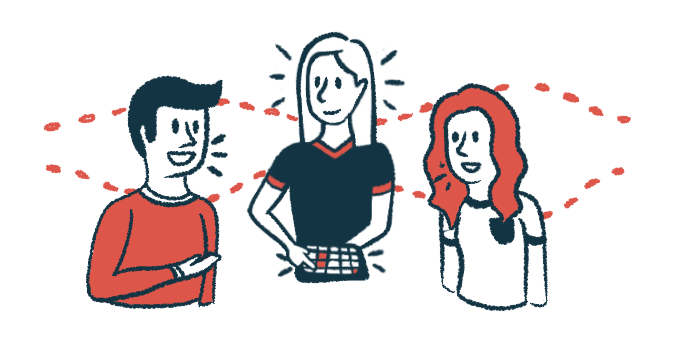Bringing song into speech therapy could strengthen patients’ voice
Small trial supports combined approach for louder and clearer speech

Combining a singing program with conventional speech therapy could help to lessen the vocal problems facing people with Parkinson’s disease, according to findings from a small clinical trial.
Therapy sessions were conducted using smartphones, and given to patients at the home.
The study, “Voice improvement following conventional speech therapy combined with singing intervention in people with Parkinson’s disease: A three-arm randomised controlled trial,” was published in the International Journal of Language & Communication Disorders.
Speech problems, such as an unusually quiet voice or trouble with articulation, are common among people with Parkinson’s disease. Speech therapy, which consists of exercises focused on the mouth and breath to improve speech, may be helpful for managing these issues. Singing programs also can be helpful for issues like raising volume or improving articulation.
Study of speech therapy, singing, or combo approach in Parkinson’s patients
There hasn’t been much research into whether combined speech and singing therapies might provide more benefits to patients than either approach alone. To learn more, scientists at Iran University of Medical Sciences conducted a clinical trial (NCT04966689).
It enrolled 33 people with Parkinson’s who had speech issues. Most participants were male, and the average age was in the late 50s.
Patients were randomly assigned to one of three interventions: a speech therapy program, a singing program, or a combined speech therapy and singing program. In all three groups, participants received four sessions each week for three weeks, amounting to a total of 12 sessions. Each session lasted about an hour based on patients’ availability and convenience, and was conducted via video on WhatsApp. Some patients had caregivers help them with their sessions.
Before and after the interventions, participants underwent voice assessments, which were performed by clinicians who did not know which intervention had been assigned. The main measure used was vocal intensity (i.e., loudness) while making an “ah” sound.
Overall loudness increased following all three interventions, results showed, although the magnitude of the increase was smaller for patients given only singing compared with speech therapy or combined therapy. Other vocal measures, such as jitter and shimmer — which cause sounds of breathiness or hoarseness — and variability in vocal tone also generally improved following all three interventions.
“The results showed significant improvements in all three groups after treatment in all outcomes over time,” the researchers wrote.
Patients’ perceptions of their voices, as measured with scores on a standardized measure called the voice handicap index (VHI), improved with all three interventions. But the magnitude of the improvement was larger with combined therapy than with speech therapy or singing alone. Vocal shimmer and frequency range also showed greater improvement with combined therapy.
“The results of this study … showed that combination therapy, compared to singing or speech therapy in isolation, had a significantly greater effect on VHI, maximum frequency range in semitones and shimmer,” the researchers wrote.
These findings suggest that vocal therapies that include singing might be beneficial for Parkinson’s patients, the researchers said, noting that singing might be an easy way for patients to engage in regular vocal exercise.
“Singing can provide opportunities for successful experiences at different levels of speech, language and musical abilities. Because it is readily available in most communities, singing as a vocalisation treatment may be accessible and economical,” the team wrote. “In addition, singing is a normal activity can be performed daily and may thus facilitate the maintenance of voice skills over the long term.”
The scientists noted that this study is limited by the small size and short duration, stressing the importance of providing individualized care to help people with Parkinson’s manage speech issues.







